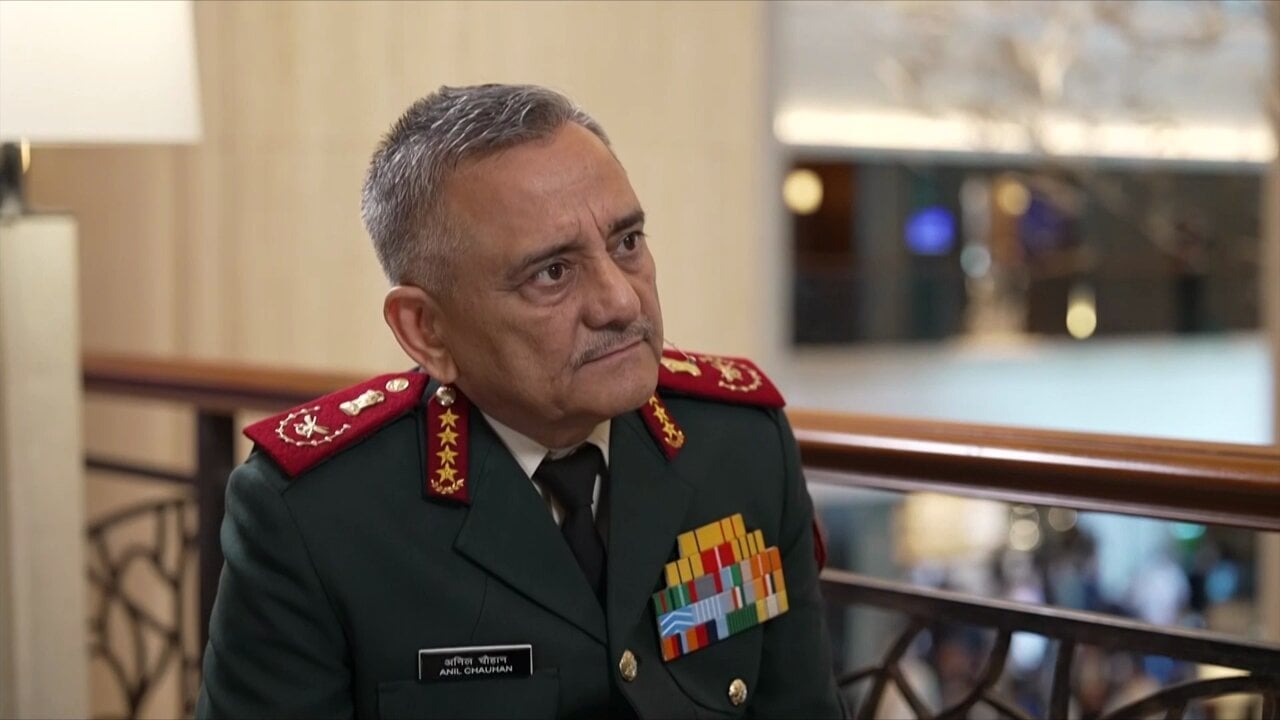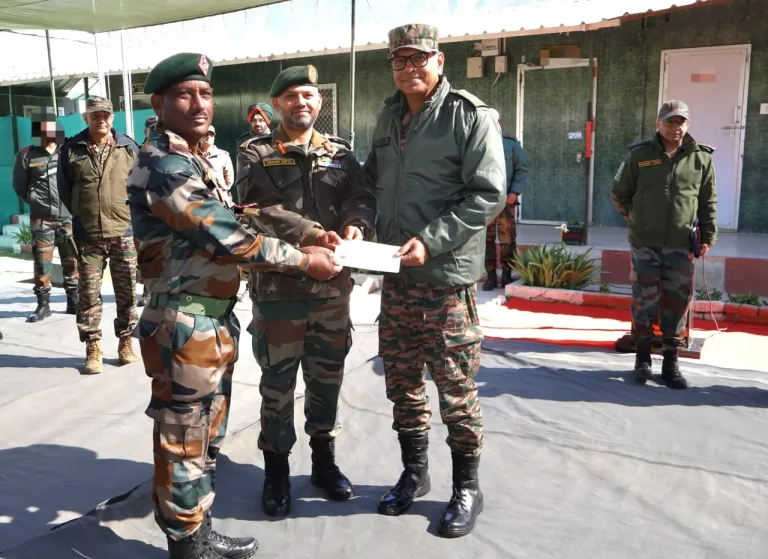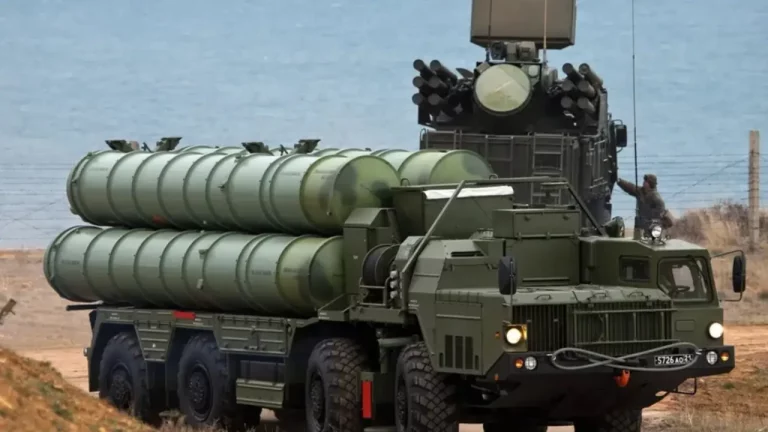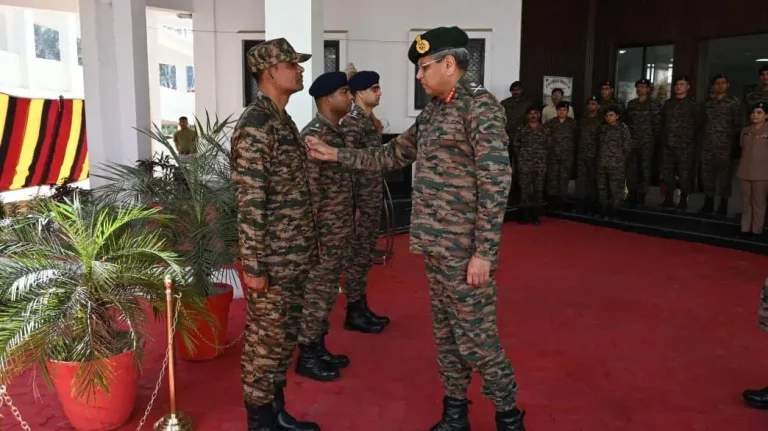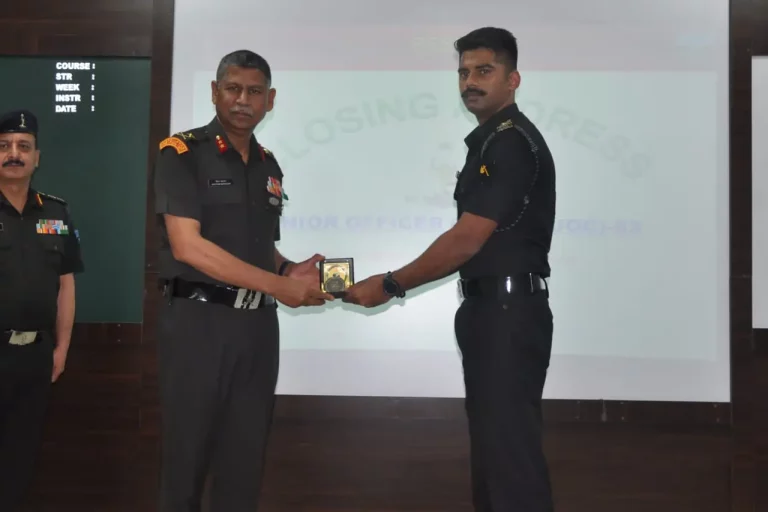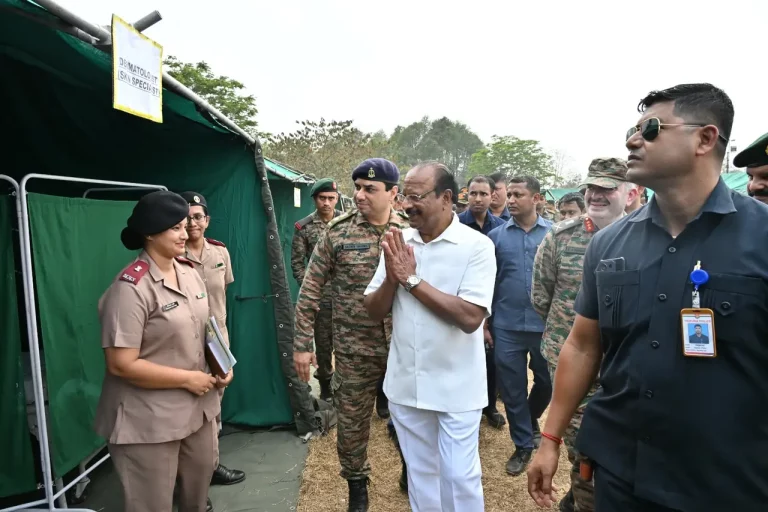India has officially acknowledged the loss of fighter jets during its recent four-day conflict with Pakistan, marking a notable moment in their ongoing tensions. This confirmation came from Chief of Defense Staff General Anil Chauhan in an interview at the Shangri-La Dialogue in Singapore.
During his conversation with Bloomberg Television, General Chauhan refrained from disclosing the precise number of aircraft lost, instead underscoring the importance of understanding the reasons behind these losses. He emphasized, “What is important is not the jet being down, but why they were down,” indicating a focus on learning from operational mistakes.
Offering a rebuttal to Pakistan’s assertion that it shot down six Indian warplanes, General Chauhan labeled this claim as “absolutely incorrect.” He highlighted India’s capability to respond rapidly following initial setbacks, noting that Indian fighter jets were redeployed within two days to conduct precision strikes on well-fortified targets in Pakistan.
The admission regarding lost aircraft was significant, as it occurred during the aftermath of hostilities that began on May 7, following a lethal terror attack in Indian-administered Kashmir that resulted in 26 civilian casualties. India has accused Pakistan of organizing this attack, although Islamabad has denied such claims. The conflict, characterized by aerial dogfights, missile strikes, drone operations, and artillery exchanges, has been described as the most intense confrontation between the two nuclear-armed nations in over five decades.
Despite the intensity of the conflict, General Chauhan reassured that the situation did not approach the brink of nuclear escalation. He noted that communication channels remained open throughout the conflict, ensuring better control of the situation and robust deterrence mechanisms in place.
This acknowledgment of aerial losses represents India’s first public commentary on the extent of its military setbacks, although specific details are still classified for strategic reasons. Until now, the Indian government had largely refrained from addressing claims made by Pakistani Prime Minister Shehbaz Sharif regarding the downing of Indian jets.
While analysts had speculated about military losses on both sides, independent verification was challenging due to the sensitive nature of the conflict and restrictions on access to combat zones. The recent acknowledgment from India offers some clarity but still leaves many aspects elusive.
General Chauhan’s remarks seem to indicate a shift towards greater transparency, albeit carefully measured. This approach suggests India aims to resolve its operational setbacks internally while maintaining strategic ambiguity about specific military actions.
As tensions between the two nations have lessened, calls for de-escalation, diplomatic dialogue, and improved crisis-management frameworks are on the rise, aimed at preventing future conflicts from escalating further.
